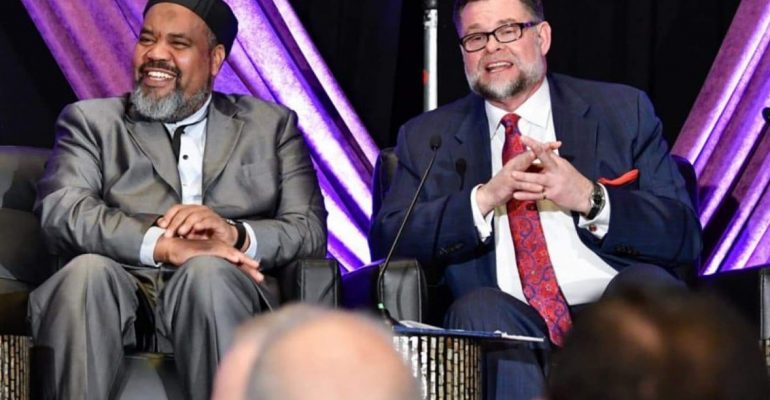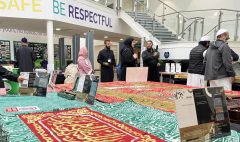How the National Prayer Breakfast sparked an unusual meeting between Muslims and evangelicals
February 7, 2018 2024-03-18 15:17How the National Prayer Breakfast sparked an unusual meeting between Muslims and evangelicals

How the National Prayer Breakfast sparked an unusual meeting between Muslims and evangelicals
Texas pastor Bob Roberts has traveled to Washington before for the National Prayer Breakfast, a Christian-organized networking event where evangelicals come to schmooze about topics including their shared goal of bringing people to Christ. That was Roberts’s focus in the past. This year, he’ll attend with one of his closest current collaborators: an 85-year-old Islamic scholar visiting from Abu Dhabi.
Roberts and Shaykh Abdallah Bin Bayyah are attending the Thursday breakfast following an unusual gathering that was held during the previous three days: Four hundred faith leaders coming together to forge ties, work that has been common for many U.S. faith groups for decades but often has eluded one particular pair: Muslims and evangelicals.
White evangelicals have the most anti-Muslim views of any American faith group, polls show, and the meeting — timed so Bayyah could attend the huge prayer breakfast in Northwest Washington — reflects the urgency an increasing number of imams and pastors feel at a time when the world seems especially tribal and explosive.
The sight of a massive hotel ballroom of evangelical pastors and imams — as well a smattering of Jews and Catholics — brainstorming on how to build ties showed how the stable of people doing such work has grown in recent years. As they met downstairs, TVs in the upstairs lobby of the Marriott Marquis showed news reports of proposed restrictions from the White House on Muslim immigrants.
Less than a decade later, Roberts has “planted” more than 100 churches, and his church has nearly 3,000 members. In 2014, he launched a program called “My Neighbor’s Keeper” that pulls together small groups of rabbis, imams and pastors, puts them through intensive group training, then requires they commit to working with, visiting and publicly defending one another. The initial plan was to do small groups in 10 cities over a decade, and this year alone, the program has trained 20 groups.
Continue reading at: The Washington Post








